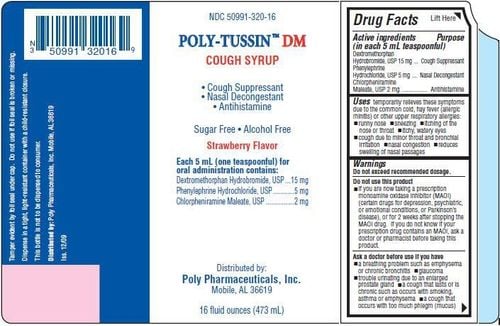This is an automatically translated article.
Shortness of breath, wheezing, cough, chest pain... are common symptoms in a number of diseases related to the respiratory tract. In fact, these symptoms can also be symptoms of other dangerous diseases. Distinguishing diseases with similar symptoms plays an important role in effective diagnosis and treatment.
1. Symptoms of Asthma
Children with asthma often have symptoms before the age of 10 (about 50%) and the average age of onset is 7 years. In adults, on the contrary, the disease can start at any time.
Signs of asthma onset are varied, with gradual onset common in the elderly, smokers; Sudden onset of the disease is common in young people. When outbreaks, patients often have the following manifestations:
Cough: Usually uncharacteristic, dry cough; sometimes often spit a lot of white, viscous, sticky sputum (pearls); Cough usually occurs after shortness of breath subsides. There are cases where coughing is the only symptom of an outbreak: Nocturnal, persistent, recurrent cough.
Shortness of breath: This is the basic characteristic symptom of an asthma flare-up. Shortness of breath, severe or mild in episodes, may resolve on its own or go away after taking bronchodilators. Have recurrent episodes of wheezing, cough that is severe and increases at night or early in the morning, coughs after exercise or exertion, shortness of breath during certain seasons or changes in weather or seasons, cough or difficulty breathing when encountering a certain allergen. These symptoms improve with the use of bronchodilators.

Bệnh hen suyễn gây ra triệu chứng khó thở cho người bệnh
Symptoms of upper airway stenosis: Characterized by wheezing. Mild airway obstruction, crackles heard only at the end of forced inspiration. Moderate obstruction, crackles occurring in 1 or 2 strokes, polyphonic wheeze. Severe obstruction, little or no crackles. Small airway obstruction, no crackles audible Respiratory rate increased, severe obstruction respiratory rate may not increase Exhalation prolongation, shortness of breath, Shortness of accessory respiratory muscle Contraction of accessory respiratory muscles Difficulty speaking, interrupted speech Whisper reduced or lost alveoli (dumb lungs) in severe airway obstruction. Cyanosis of the skin and mucous membranes: is a sign of severe asthma flare-ups. Anxiety, fear due to reduced oxygen in the brain. In mild flare-ups, the chest shape is normal. Severe, persistent flare-ups, the rib cage may swell like a chicken breast, forming temporary or permanent.

Bệnh hen suyễn giai đoạn bùng phát cần được phát hiện và điều trị kịp thời
2. Distinguish asthma from other diseases
Asthma symptoms are often confused with a number of medical conditions such as:
Allergic rhinitis: This common condition causes symptoms to be confused with asthma. A common symptom of allergic rhinitis is also often a runny nose, which, in turn, leads to coughing episodes. You need to go to the medical facility to see if you have a prescription or to see if it is okay to buy it from the pharmacy. Heartburn: Gastroesophageal reflux disease (GERD) causes stomach acid to rise and back up into the esophagus. While heartburn – is a burning sensation below your breastbone that triggers a cough or feels like you have to clear your throat all the time. Heartburn can lead to asthma symptoms.
Depression: If you feel anxious, panicky, you can breathe faster and deeper, which in turn leads to you having too much CO2 in your blood. As a result, you feel like you're not getting enough oxygen causing shortness of breath. In fact, some people with asthma also have anxiety and stress problems that mimic depression (and they can make each other worse). But it's also possible that you don't have asthma at all. To solve the problem, you need to see a health professional to find out your health problem. Chronic illness, lying down, reduced mobility: Being sick or being overweight can also cause shortness of breath. According to Dr. Lockey: "Every month, 1 patient is sent to the gastric reduction surgery room to help them lose more than 45kg." Once the weight is reduced, the asthma will also go away. Several theories have been put forward to link asthma with being overweight. According to Dr. Laurel Stephenson, a lung specialist at the University of Minnesota, asthma often goes hand in hand with obesity. However, some evidence suggests that, sometimes, it's just weight that matters (asthma , by definition, is defined as contractions in the airways).

Một số đối tượng thừa cân, béo phì có thể là nguyên nhân gây ra tình trạng khó thở
Serious lung or heart disease: Although not really likely, a small number of people who believe they have asthma develop cardiovascular diseases such as choking, tracheal obstruction, pulmonary fibrosis, increased Pulmonary hypertension, chronic obstructive pulmonary disease (COPD).
3. Note when in the treatment of asthma
While treating asthma, you need to pay attention to some basic issues:
Do not smoke, avoid secondhand smoke, dust, coal smoke, strong odors; Do not keep pets in the house such as dogs and cats; Keep the living environment clean and cool; Avoid eating potentially allergenic foods: pupae, shrimp, crabs, seafood. Currently, Vinmec International General Hospital has an asthma screening package for patients with bronchial asthma. Vinmec's asthma screening package helps:
Screening for early detection to promptly control and treat the disease Perform clinical examination, take medical history, measure respiratory function, otolaryngology and clinical examination bronchial filter.

Kiểm tra sức khỏe tổng quát sẽ giúp bạn phát hiện được các bệnh lý nguy hiểm
Vinmec International General Hospital has a team of highly qualified and experienced doctors, fully equipped with modern facilities and equipment to diagnose diseases and stage a treatment before treatment. most effective way. Especially when coming to Vinmec International General Hospital, patients do not have to wait long, have a quick examination time and are carefully guided by a team of experienced medical staff on the use of drugs, medicines and other medical conditions. A specially designed aerosol-aerosol that guides positive lifestyle changes to help patients easily adhere to their asthma management.
To register for examination and treatment at Vinmec International General Hospital, you can contact Vinmec Health System nationwide, or register online HERE
SEE MORE
What do people with asthma avoid eating? Risk of asthma in premature babies How to recognize asthma yourself













